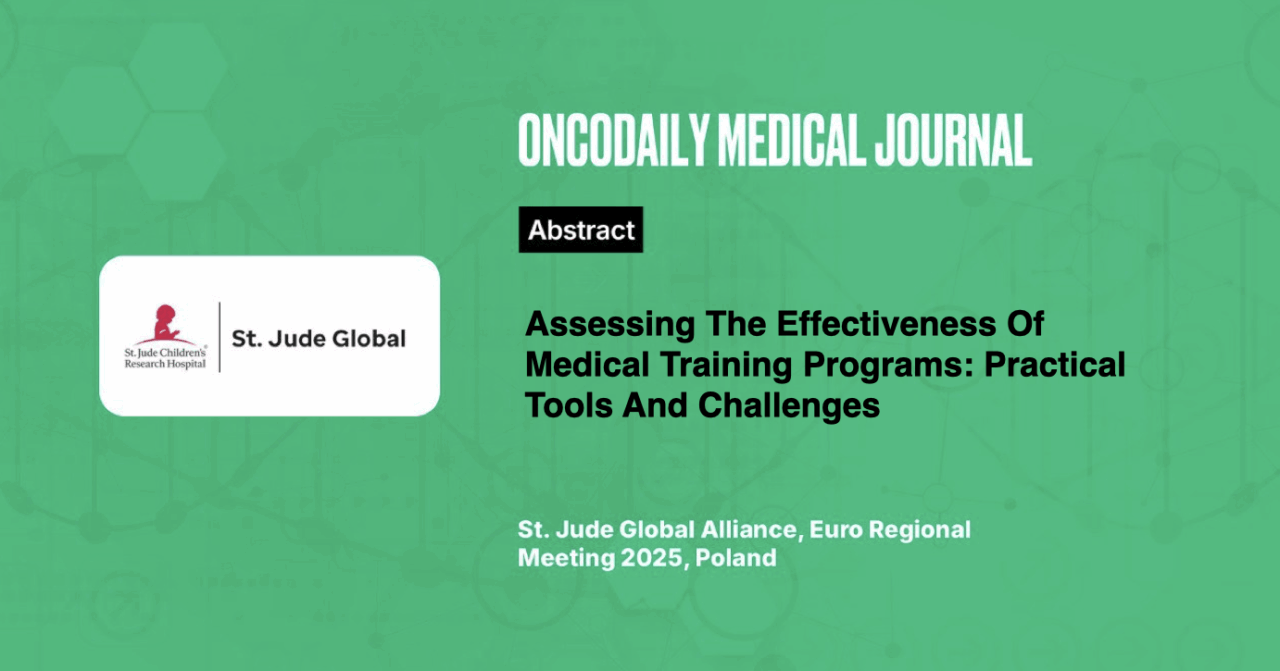Assessing The Effectiveness Of Medical Training Programs: Practical Tools And Challenges
Abstract
Introduction: In 2023, Tabletochki Charity Foundation launched the Know-HOW Training Initiative to enhance the professional competencies of the pediatric hematology-oncology (PHO) workforce. The two-year curriculum aims to develop clinical, research, and communication skills through various educational interventions. A significant challenge is to reliably assess the training program’s effectiveness and impact. The objective was to identify and test practical approaches for evaluating the effectiveness and impact of the training program.
Methodology: The Kirkpatrick evaluation model was applied to assess the effectiveness of the Know-HOW Training Initiative at four levels: reaction, learning, behavior, and results, with higher levels requiring increasingly complex tools and approaches.
Results: Reaction has been evaluated through post-event feedback and informal input from quarterly online student meetings. Learning outcomes have been measured using providers’ tests, academic performance metrics, or self-assessment tools, including pre- and post-tests. Behavioral changes have been tracked through self-reported improvements and innovations that students commit to after observership visits, followed by three-month progress checks. Measuring results, such as survival rate improvements, is challenging in Ukraine due to limited access to hospital data. As an alternative, the initiative evaluates indirect outcomes, such as the career growth of participants, to assess its broader impact.
Conclusion: Practical tools can effectively assess training programs at the reaction, learning, and behavior levels. However, evaluating impact remains challenging in contexts where data collection and access are limited.





